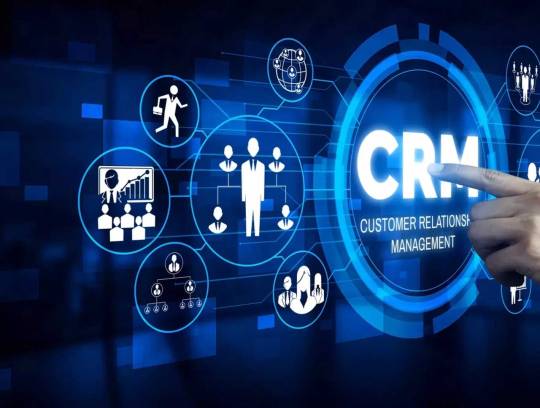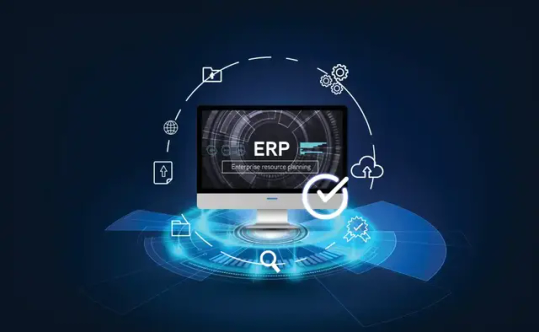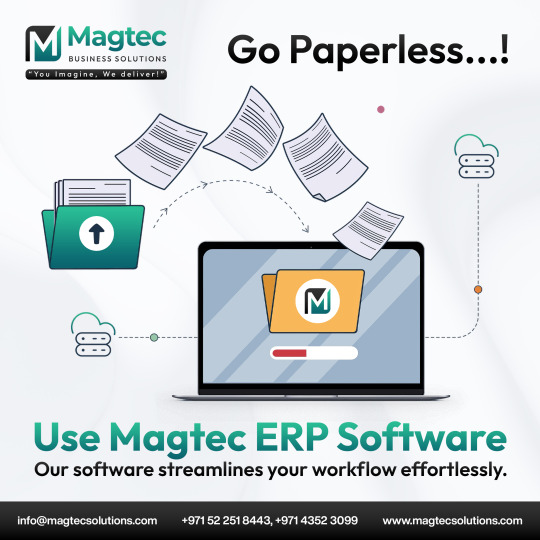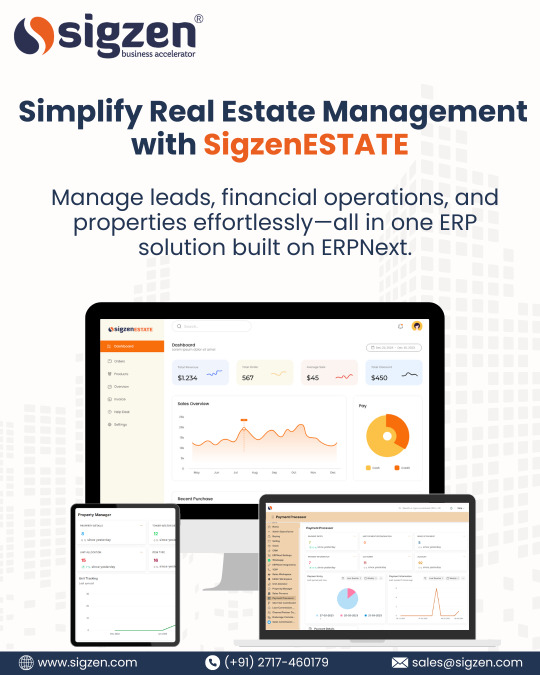#ERP and CRM systems
Explore tagged Tumblr posts
Text
How AWS Helps Small & Medium Businesses Scale ERP & CRM Efficiently

Introduction
In today’s fast-changing business environment, small and medium-sized businesses (SMBs) face the challenge of expanding their operations while ensuring efficiency and cost-effectiveness. Enterprise Resource Planning (ERP) and Customer Relationship Management (CRM) systems are crucial for streamlining business processes and improving customer interactions. Amazon Web Services (AWS) provides powerful solutions that enable SMBs to effectively implement and scale their ERP and CRM systems.
1. Rapid Deployment and Scalability
AWS offers a flexible infrastructure that allows small and medium-sized businesses (SMBs) to quickly deploy ERP and CRM solutions. Through services like AWS Marketplace, businesses can access a variety of pre-configured applications designed to meet their specific needs. For example, Digital Alpha’s Cloud ERP for SMBs, built on Odoo, provides customizable business applications that can be deployed with just one click, helping to streamline operations and reduce time-to-market.
Additionally, AWS’s scalable environment ensures that your ERP and CRM systems can efficiently scale to handle increased workloads without requiring significant changes to the infrastructure as your business grows.
2. Cost-Effective Solutions
Traditional on-premises ERP and CRM systems typically require significant upfront investments in hardware and maintenance. In contrast, AWS’s cloud-based solutions eliminate these costs by offering a pay-as-you-go model that fits within the budget constraints of small and medium-sized businesses (SMBs). This approach enables companies to allocate their resources more effectively, allowing them to invest in growth rather than infrastructure.
3. Enhanced Data Security and Compliance
Data security is essential for any business. AWS offers robust security features, such as encryption, access controls, and compliance certifications, to protect sensitive business and customer data. Small and medium-sized businesses (SMBs) can utilize these features to satisfy industry-specific compliance requirements without needing extensive in-house security expertise.
4. Integration with Advanced Analytics and AI
The AWS ecosystem includes services such as Amazon QuickSight and Amazon SageMaker, which allow small and medium-sized businesses (SMBs) to incorporate advanced analytics and machine learning into their ERP (Enterprise Resource Planning) and CRM (Customer Relationship Management) systems. This integration enhances data-driven decision-making, enables predictive analytics, and personalizes customer experiences, giving businesses a competitive advantage in the market.
5. Improved Customer Relationship Management
Implementing CRM solutions on AWS enables SMBs to consolidate customer data, automate marketing efforts, and enhance customer service. Research indicates that adopting a unified CRM platform can lead to improved reporting accuracy and higher customer satisfaction.
6. Access to a Broad Ecosystem of Solutions
AWS Marketplace provides a wide variety of ERP and CRM applications from different vendors, allowing small and medium-sized businesses (SMBs) the flexibility to select solutions that best meet their specific needs. This accessibility makes it easier to find and implement the right tools to enhance business operations.
Conclusion
AWS enables SMBs to effectively implement and scale their ERP and CRM systems. With benefits including rapid deployment, cost savings, improved security, and access to advanced analytics, businesses can streamline operations and strengthen customer relationships. By leveraging AWS’s robust cloud infrastructure and diverse ecosystem, SMBs can position themselves for sustainable growth in a competitive marketplace.
0 notes
Text
#erp software#erpnext module#erp implementation#crm software#erp system#erp quality management#erpnext
2 notes
·
View notes
Text


Best ERP and CRM Software Company in India | JRS Dynamics Info Solutions
Looking for reliable ERP and CRM solutions? JRS Dynamics Info Solutions is your go-to partner for streamlining business operations and driving growth.
Why Choose JRS Dynamics? ✅ End-to-End ERP Solutions ✅ Advanced CRM Systems ✅ Industry-Specific Customizations ✅ Implementation, Support & Upgrades
JRS Dynamics, we deliver cutting-edge technology to help businesses in India thrive in a competitive landscape.
Explore our services at: https://jrsdynamics.com/
Empower your business with the best ERP and CRM solutions from JRS Dynamics!
#crm#crm software#crm solutions#crm management software#erp#erpsoftware#dynamics365#erp solutions provider#digitaltransformation#businessmanagement#businessgrowth#businesssolutions#microsoftdynamics365#erp system#softwaredevelopment
4 notes
·
View notes
Text

📊 Simplify. Optimize. Accelerate. Manage your entire business from your fingertips with Sigzen Industrial ERP! From sales to warehouse, HR to reports — we’ve got you covered. 💼
#erpnext#erp implementation#businesssolutions#business optimization#business software#manufacturing solutions#erp software solutions#sigzen#erpsoftware#erp software#erp system#crm software
4 notes
·
View notes
Text

Tired of paper piles? 🚫 Go paperless with Magtec ERP Software! 💻 Streamline your workflow and boost efficiency. It's time to embrace the digital future.
#erp#business#software#management#automation#enterprise#resources#planning#solution#system#cloud#industry#finance#accounting#supplychain#inventory#crm#hr#manufacturing#distribution#retail#healthcare#education#hospitality#smallbusiness#mediumenterprise#largeenterprise#magtecerp#magtec#magtecsolutions
3 notes
·
View notes
Text
Erpnext is a Oman VAT erp system in Muscat Oman
#erp software#erp solution#best erp for small business 2024#erp systems#marketing#finance#accounting#crm software
6 notes
·
View notes
Text
The Future of Learning: A Deep Dive into Education ERP Innovations
In today's fast-paced world, the landscape of education is constantly evolving. Technological advancements have revolutionized the way we learn, and one of the most significant innovations in the field of education is the advent of Education ERP (Enterprise Resource Planning) systems. These sophisticated solutions are reshaping the future of learning by streamlining administrative processes, enhancing communication, and providing a more personalized educational experience.
What is Education ERP?
Education ERP refers to a comprehensive software solution tailored to meet the unique needs of educational institutions. It integrates various functions like admissions, student management, finance, human resources, and academic management into a single platform. This integration empowers schools and universities to efficiently manage their operations, resulting in enhanced productivity and a more immersive learning environment.
Streamlining Administrative Processes
One of the primary advantages of Education ERP innovations is the automation of administrative tasks. From student admissions to fee management and timetable scheduling, these systems simplify and expedite the often complex processes that educational institutions face. This streamlining not only saves time but also minimizes human errors, ensuring a smoother operation.
Enhancing Communication
Effective communication is at the core of any successful educational institution. Education ERP systems provide a centralized platform for communication between teachers, students, parents, and administrative staff. This seamless interaction fosters collaboration and understanding, leading to a more supportive and connected learning community.
Personalizing Education
Education ERP innovations enable the personalization of the learning experience. With data analytics and insights, educators can tailor their teaching methods to meet the unique needs of each student. This personal touch enhances engagement and ensures that no one falls through the cracks in the educational system.
Bursting the Bubble of Traditional Education
Traditional educational systems have long been criticized for their one-size-fits-all approach. Education ERP systems burst this bubble by introducing a new era of individualized learning. This innovation allows students to learn at their own pace, explore their interests, and receive the support they need to excel.
The Future of Learning Management
The shift towards online learning and remote education is further driving the need for Education ERP systems. These innovations are the backbone of modern Learning Management Systems (LMS), which are essential for delivering courses, managing assignments, and tracking progress. LMS powered by Education ERP technology are making education more accessible and flexible than ever before.
Data-Driven Decision Making
Education ERP systems are a goldmine of data that can be harnessed to make informed decisions. By analyzing student performance, resource allocation, and overall institution management, educational leaders can identify areas that need improvement and implement strategic changes to enhance the quality of education.
Conclusion
The future of learning is bright with the ongoing innovations in Education ERP systems. These solutions are transforming the way educational institutions operate, enhancing communication, personalizing education, and bursting the bubble of traditional learning. As we move forward, the education sector will continue to evolve, and Education ERP innovations will play a vital role in shaping this transformation.
2 notes
·
View notes
Text
The Art and Science of CRM Software Development
Introduction
Customer Relationship Management (CRM) software has become the backbone of successful businesses in today's competitive landscape. CRM software development involves creating robust platforms that enable businesses to manage interactions with customers, analyze data, and enhance overall customer experiences. This article explores the world of CRM software development, its importance, and how it revolutionizes the way businesses cultivate and maintain meaningful relationships with their customers.
1. The Power of CRM Software
CRM software serves as a comprehensive tool that empowers businesses to understand, engage, and nurture their customer base. From tracking interactions to forecasting trends and automating tasks, CRM software streamlines processes and enhances the efficiency of customer-facing activities.
2. Customized Solutions
Off-the-shelf CRM solutions might offer a starting point, but custom CRM software development takes personalization to a new level. Tailoring CRM systems to the unique needs and workflows of a business ensures that it aligns seamlessly with existing processes and provides maximum value.
3. Centralized Data Hub
CRM software acts as a centralized hub for customer data. It consolidates information from various touchpoints, such as emails, social media interactions, and purchases, providing businesses with a holistic view of each customer's journey and preferences.
4. Enhanced Customer Insights
One of the most significant advantages of CRM software development is its ability to provide valuable insights into customer behavior and preferences. Businesses can analyze data to identify patterns, segment audiences, and tailor marketing strategies for maximum impact.
5. Personalized Customer Experiences
Today's consumers value personalized experiences more than ever. CRM software enables businesses to deliver personalized content, recommendations, and offers based on customer data, leading to higher engagement and loyalty.
6. Automation and Efficiency
CRM software development integrates automation into various aspects of customer management. Tasks like lead nurturing, follow-ups, and customer support can be automated, freeing up valuable time for teams to focus on more strategic activities.
7. Sales and Marketing Alignment
CRM software bridges the gap between sales and marketing teams. By tracking customer interactions and behavior, both teams can work together more effectively to target leads, nurture prospects, and convert them into loyal customers.
8. Real-time Collaboration
Modern CRM software offers real-time collaboration features, allowing teams to work together seamlessly regardless of their physical locations. This fosters effective communication and ensures that everyone has access to up-to-date customer information.
9. Measuring ROI and Analytics
CRM software enables businesses to measure the return on investment (ROI) of their marketing and sales efforts. Advanced analytics and reporting features provide insights into which strategies are working and where improvements can be made.
10. Scalability
As businesses grow, their CRM needs evolve. Custom CRM software development ensures scalability, allowing the system to accommodate increased data, users, and functionalities without compromising performance.
Conclusion
CRM software development has transformed how businesses manage and nurture customer relationships. From personalized experiences to streamlined processes, the benefits of CRM software are vast. By investing in custom solutions that cater to their unique needs, businesses can gain a competitive edge, enhance customer satisfaction, and drive growth in the ever-evolving landscape of customer relationships.
2 notes
·
View notes
Text
POS Software Dubai
In Dubai's thriving retail and hospitality industries, having a quick, dependable, and simple point-of-sale system is critical to business success. Farzana has emerged as the top point-of-sale software in Dubai, assisting shops, supermarkets, cafes, and restaurants in managing sales efficiently and improving customer experience. Farzana POS's easy UI and powerful features help to streamline transactions and improve day-to-day business operations.
Farzana POS stands out for its adaptability and real-time data capabilities. It offers barcode scanning, inventory tracking, discount administration, and a variety of payment options, making it a one-stop shop for both small businesses and large retailers. Business owners may use a centralized dashboard to monitor sales success, manage stock levels, and analyze consumer preferences, whether they are on-site or working remotely.
Another significant advantage of Farzana POS is its smooth interaction with other corporate systems such as accounting, CRM, and ERP platforms. This guarantees that your sales data is transferred smoothly across departments, reducing duplication and saving time. Farzana POS is also completely VAT-compliant and can support many locations, making it suitable for expanding firms in Dubai's competitive market.
With dependable local support, frequent software updates, and cloud-based convenience, Farzana POS is trusted by hundreds of businesses across Dubai. Whether you run a boutique, a grocery store, or a quick-service café, Farzana gives you the tools to serve your customers better and grow your business with confidence. It’s more than just a POS—it's a smart investment in your business future.

0 notes
Text
Enhancing Sales Processes with Dynamics 365: A Complete Guide to Transformation

Sales teams today face unprecedented challenges. Customer expectations continue rising while competition intensifies across every industry. Organizations that rely on outdated processes and disconnected systems find themselves falling behind competitors who have embraced modern technology solutions. Microsoft Dynamics 365 offers a comprehensive platform that transforms how businesses approach sales management, customer relationships, and revenue generation.
The Modern Sales Challenge
Traditional sales processes often involve multiple disconnected tools, manual data entry, and time-consuming administrative tasks that pull sales representatives away from what they do best: selling. Sales teams juggle spreadsheets, email chains, and various software applications while struggling to maintain accurate customer records and track opportunities effectively. This fragmented approach leads to missed opportunities, inconsistent customer experiences, and reduced productivity across the entire sales organization.
Many companies recognize these problems but hesitate to implement comprehensive solutions due to concerns about complexity, cost, and disruption to existing workflows. However, the cost of maintaining inefficient processes far exceeds the investment required for Dynamics 365 Implementation, especially when considering long-term productivity gains and revenue growth potential.
Streamlining Lead Management
Dynamics 365 revolutionizes lead management by creating a centralized system that captures, qualifies, and nurtures prospects throughout the entire sales funnel. The platform automatically scores leads based on predetermined criteria, ensuring sales teams focus their efforts on the most promising opportunities. Advanced analytics provide insights into lead sources, conversion rates, and customer behavior patterns that inform strategic decision-making.
The system integrates seamlessly with marketing automation tools, creating a unified view of each prospect's journey from initial awareness through final purchase. Sales representatives can access complete interaction histories, including website visits, email engagements, and previous conversations, enabling more personalized and effective sales approaches.
Automating Administrative Tasks
One of the most significant benefits of Dynamics 365 Implementation involves reducing administrative burden on sales teams. The platform automates routine tasks such as data entry, follow-up reminders, and report generation, freeing up valuable time for relationship building and deal closing activities. Automated workflows ensure consistent processes across the organization while reducing human error and improving data quality.
Custom business rules can be configured to handle specific organizational requirements, such as approval processes for large deals or automatic assignment of leads based on geographic territories or industry verticals. These automation capabilities scale with business growth, maintaining efficiency even as sales teams expand.
Enhanced Customer Relationship Management
Dynamics 365 provides a 360-degree view of each customer relationship, consolidating information from multiple touchpoints into a single, accessible record. Sales representatives can quickly understand customer preferences, purchase history, support interactions, and current opportunities without switching between different systems or searching through email archives.
The platform's collaboration tools enable seamless communication between sales, marketing, and customer service teams, ensuring consistent messaging and coordinated efforts throughout the customer lifecycle. Real-time updates keep all stakeholders informed about account developments, preventing miscommunication and duplicate efforts.
Advanced Analytics and Reporting
Data-driven decision making becomes possible through Dynamics 365's robust analytics capabilities. The platform generates comprehensive reports on sales performance, pipeline health, and forecasting accuracy, providing managers with actionable insights for strategic planning and resource allocation. Customizable dashboards display key performance indicators in real-time, enabling quick identification of trends and potential issues.
Predictive analytics features leverage artificial intelligence to identify patterns and suggest next best actions for individual deals. These insights help sales representatives prioritize activities and optimize their approaches based on similar successful scenarios from the past.
Mobile Accessibility and Remote Work Support
Modern sales teams require access to customer information and sales tools regardless of location. Dynamics 365's mobile applications provide full functionality on smartphones and tablets, enabling productive work whether representatives are in the office, traveling, or meeting with clients. Offline capabilities ensure continuity even in areas with limited internet connectivity.
Implementation Success Factors
Successful Dynamics 365 Implementation requires careful planning, stakeholder buy-in, and ongoing support. Organizations should begin with clear objectives, realistic timelines, and comprehensive training programs for all users. Change management strategies help teams adapt to new processes while maintaining momentum toward improved sales performance.
The investment in Dynamics 365 Implementation pays dividends through increased sales productivity, improved customer satisfaction, and sustainable revenue growth. Companies that embrace this transformation position themselves for long-term success in increasingly competitive markets.
#microsoft dynamics 365 implementation#crm software#erp implementation#erp system#microsoft dynamics 365
0 notes
Text
Understanding AWS Services for ERP and CRM Integration

Introduction
In today’s fast-paced business environment, integrating Enterprise Resource Planning (ERP) and Customer Relationship Management (CRM) systems has become essential for organizations looking to streamline operations and improve customer experiences. Amazon Web Services (AWS) provides a robust suite of tools and services that facilitate seamless integration between ERP and CRM platforms, allowing businesses to achieve greater efficiency, scalability, and data-driven decision-making.
1. The Importance of ERP and CRM Integration
ERP systems manage core business processes such as finance, supply chain, and human resources, while CRM systems focus on customer interactions and sales management. Integrating these systems leads to:
Enhanced Data Accuracy: Eliminating data silos reduces errors and inconsistencies
Comprehensive Customer Insights: Combining operational and customer data provides a holistic view of business performance.
Improved Decision-Making: Access to unified data enables more informed strategic decisions.
According to Priority Software, such integration promotes improved organizational collaboration and personalized customer experiences.
2. AWS Services Facilitating ERP and CRM Integration
AWS offers a variety of services that support the integration of ERP and CRM systems:
AWS Marketplace
AWS Marketplace provides a range of ERP and CRM solutions that can be deployed quickly and scaled as needed. Businesses can select from top vendors, benefiting from flexible pricing and customizable features tailored to their industry needs.
Amazon AppFlow
Amazon AppFlow enables secure data transfer between AWS services and SaaS applications like Salesforce. This service simplifies the integration of CRM data with other AWS services, facilitating real-time data analysis and reporting.
AWS Lambda and API Gateway
For custom integration needs, AWS Lambda allows businesses to run code in response to events without needing to provision servers, while API Gateway enables the creation of robust APIs. Together, they support the development of tailored integration solutions between ERP and CRM systems.
Amazon RDS and Amazon S3
Amazon Relational Database Service (RDS) and Amazon Simple Storage Service (S3) provide scalable and secure data storage solutions that are essential for managing the large volumes of data generated by ERP and CRM systems.
3. Benefits of Integrating ERP and CRM on AWS
Implementing ERP and CRM integration using AWS services offers several advantages:
Scalability: AWS’s infrastructure supports business growth without requiring significant upfront investments.
Cost-Effectiveness: Pay-as-you-go pricing models help reduce capital expenditures and align costs with actual usage.
Improved Security: AWS offers robust security measures that ensure data protection and compliance with industry standards.
Operational Efficiency: Automated workflows and real-time data access streamline business processes.
As highlighted by AWS, integrating ERP systems results in operational efficiency, data integration, cost savings, and scalability.
4. Real-World Application: SAP ERP Integration with AWS
Many mid-sized companies and enterprises have successfully integrated SAP ERP systems with AWS, automating business processes such as order processing, inventory management, and CRM. This integration enhances productivity, agility, and profitability by providing a secure platform for managing and accessing data.
Conclusion
Integrating ERP and CRM systems using AWS services enables businesses to unify their operations, gain comprehensive insights, and respond swiftly to market changes. AWS’s scalable infrastructure, diverse service offerings, and commitment to security make it an ideal platform for organizations looking to enhance operational efficiency and customer engagement through integrated solutions.
0 notes
Text
2 notes
·
View notes
Text

🎯 Struggling to deliver personalized assignments the traditional way? Say goodbye to outdated methods and hello to smarter learning with Achyuta Software! 💡📚
✅ Admission ✅ Attendance ✅ Payroll ✅ Examination All powered by one intelligent platform — Achyuta Software, trusted by: 👩🎓 12,000,000+ Students | 👨🏫 240,000+ Teachers | 🏫 18,000+ Schools
🚀 Upgrade your education system today — because every student deserves a personal learning journey.
#artificial intelligence#devlog#web developers#machine learning#branding#app developers#web development#app development#coding#html#website#web design#website design#software company#software development#information technology#software#saas#technology#odoo erp#erp system#erp#erp software#crm software#erpsoftware#app design#app developing company#softwaredevelopment
0 notes
Text

🏢✨ Simplify your real estate operations with SigzenESTATE – your all-in-one ERP solution powered by ERPNext! From managing leads to streamlining finances and property details, we've got it all covered. Effortless, efficient, and built for success. 💼💡
📊 Everything you need, all in one smart dashboard. 📞 Ready to transform the way you work? Let's connect!
#erpnext#business growth#erp implementation#businesssolutions#business software#erp software solutions#real estate prosperity#real estate management#real estate#property solutions#sigzen#erp system#erp software#crm software#realestateerpsoftware
4 notes
·
View notes
Text
CRM and ERP Solutions: The Secret to Smarter Business in New Zealand 2025
New Zealand’s digital economy demands better tools
In 2025, businesses across New Zealand are embracing digital transformation at every level—from how they serve customers to how they manage back-end operations. In such a competitive and fast-moving economy, relying on spreadsheets, disconnected software, or outdated platforms no longer works.
Whether you're running a logistics firm in Auckland or a retail brand in Christchurch, the demand is clear: companies need centralized, automated systems that offer full control and visibility. This is where intelligent CRM and ERP software makes a difference—by syncing your entire business under one powerful system.
Why your business should develop a customized CRM and ERP solution
To develop a custom CRM and ERP solution is to build software that truly understands your business needs. Unlike generic platforms, a customized CRM+ERP solution is designed specifically for how your company operates—your sales flow, inventory process, customer journey, and compliance needs.
Businesses in New Zealand face unique regulatory requirements, local tax rules, and regional workflows that global software often overlooks. With a custom system, you're not forced to work around software limitations. Instead, the software is built to support your exact needs from day one.
Connecting your business through smart features
A well-built CRM improves customer tracking, automates your sales pipeline, and helps you retain loyal clients through better communication. At the same time, ERP tools streamline internal operations like payroll, project management, inventory control, and accounting.
Together, they allow your entire team to work from one source of truth. Features like live dashboards, cloud sync, task automation, and audit trails make it easier to measure performance, manage compliance, and increase productivity—all from a single login.
A smart approach to CRM ERP system development
Custom CRM ERP software development isn’t just about coding—it’s about solving real business challenges. It begins with understanding your company’s structure, identifying pain points, and mapping the most efficient workflow. From there, developers create a scalable system that adapts as your business grows.
In New Zealand, many companies need tools that support GST tracking, local payroll formats, and data hosting within national borders. These details matter—and only a well-planned custom system can deliver them without compromise.
Transparency, speed, and operational control
With the right CRM and ERP system, your business gains full control over daily operations. You’ll reduce manual errors, eliminate redundant processes, and shorten response times across departments. Employees will be able to collaborate in real-time, access data instantly, and serve customers faster.
Better internal systems lead to stronger external performance—meaning higher customer satisfaction, faster growth, and more agile decision-making. That’s the power of digital integration done right.
Partnering with the right custom software development partner
To ensure a smooth journey, work with a CRM software development company partner that understands your industry and location. The best teams won’t just build the software—they’ll guide you through architecture planning, testing, employee training, and long-term support.
In 2025, it’s not enough to have a developer. You need a partner that can translate your business strategy into scalable digital infrastructure, with clean code, intuitive interfaces, and future-proof architecture.
Final thoughts
New Zealand businesses are evolving fast—and so should your systems. A tailored CRM and ERP solution isn’t just an upgrade; it’s a strategic advantage that aligns your people, processes, and performance.
If you're ready to simplify operations, improve customer experience, and future-proof your business, now’s the time to invest in a platform built specifically for you. With the right tools and the right partner, smarter business begins today.
#crm software#erp software#crm and erp systems#crm software development#erp software development company#crm and erp development
0 notes
Text
0 notes